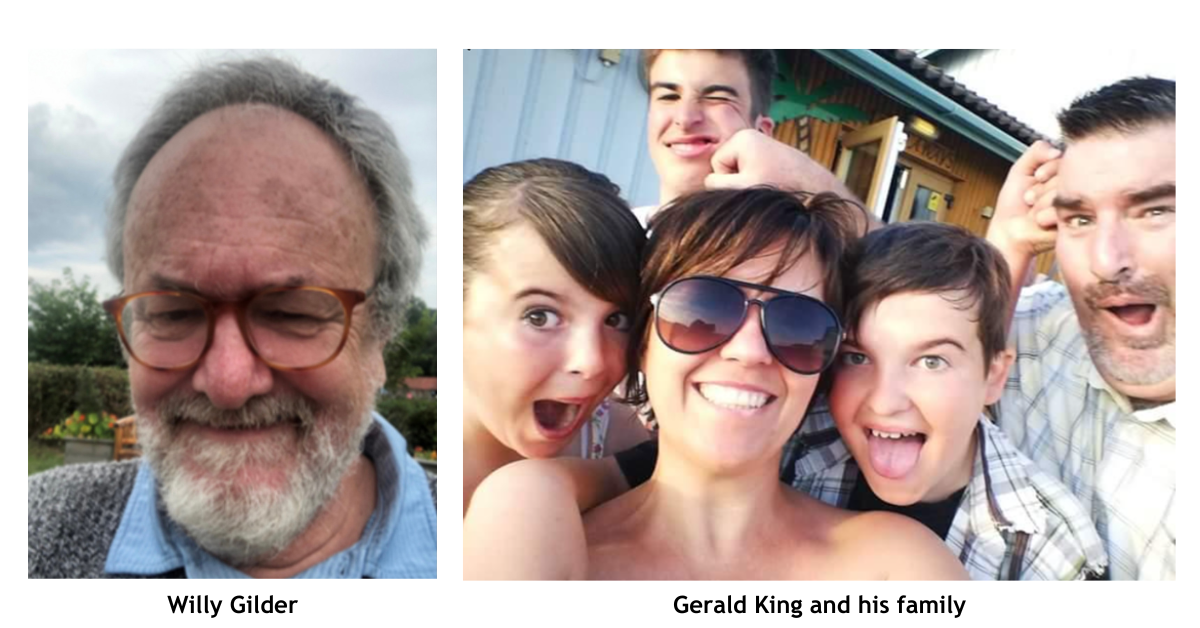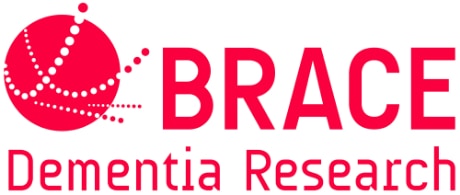Willy Gilder and Gerald King

Living Well With Dementia and the Importance of Peer Support
Willy Gilder
Willy Gilder was diagnosed with Alzheimer’s Disease affecting his parietal lobes in April 2021.
Before retiring through ill health, he worked as a radio journalist and after diagnosis decided to turn his skills to furthering the fight against the stigma that surrounds dementia.
He has also been a keen amateur artist but lost this skill with the advance of his brain disease, although he has now reconnected with art following an intensive programme of listening to 1960s music far too loud.
Having been diagnosed during lockdown he says he attributes his positive attitude towards his illness to discovering the power of peer support.
Gerald King
My name is Gerald King but everyone calls me Gerry.
I am 59 years old and live in Glenrothes in Fife. At the time of diagnosis I lived with my wife Trusha, my 2 sons, Cieran and Daniel and my daughter Stephanie.
At the age of 53 I started having short term memory problems along with visual and special awareness problems and after approximately 18 months of testing and scanning I was diagnosed with young onset Alzheimer's disease at the age of 55. Through this diagnosis I was retired from work and had to surrender my driving license. Due to this,I lost 32 years of work colleagues and close friendships, I lost the reason to get up in the morning, I no longer felt as if I was contributing to society and loosing my driving license meant that I lost all the freedoms associated with that.
When I was diagnosed there was actually no post diagnostic support available for people under the age of 65. Everything was setup for 65 and over and later stage dementia. I approached our support nurse and asked if I could talk with some of her other clients, people who were of a similar age and at a similar stage. Through that initial meeting, our peer support group STAND was formed.
STAND is facilitated by people living with young onset dementia and their wives, husbands, partners and families and we provide peer support to people newly diagnosed and living with young onset dementia and their wives, husbands, partners and families. We run a 6 week course written by and facilitated by people living with young onset dementia.
The course is called 'A Good Life With Dementia' and covers many subjects ranging from diagnosis to end of life. The idea is to provide ways and means to over come hurdles and how to live well with dementia.
We also do numerous dementia awareness presentations throughout Fife, in particular local Primary Schools. We host conferences, webinars and have had the pleasure of meeting the Scottish Government Dementia Policy Team as well as influencing local policy.
I originally helped to form STAND as purely peer support to drink tea, eat cake and share experiences. I now get involved in research and activism to improve the future lived experience of people diagnosed with dementia.
